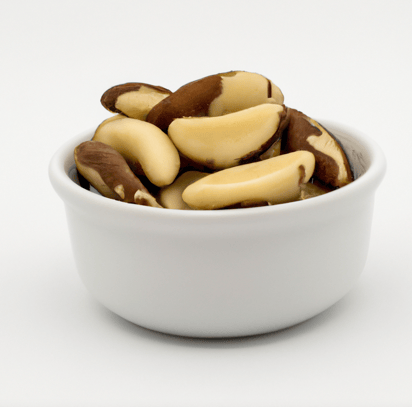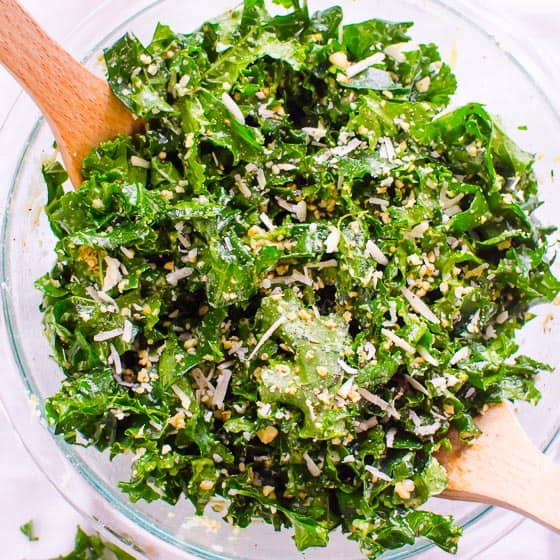Brazil Nuts: Important Facts, Health Benefits, and Recipes


Explore the health benefits, history, and culinary uses of Brazil nuts in this ultimate guide, and learn how this nutritious superfood can improve your well-being.
What are Brazil Nuts?
Brazil nuts are large, delicious tree nuts native to the Amazon rainforest in South America. They have a unique, rich, and creamy taste, making them a popular ingredient in various dishes and snacks. Brazil nuts are often enjoyed raw, roasted, or incorporated into desserts, salads, and nut butter.
Are Brazil Nuts Healthy?
Brazil nuts are definitely healthy! Brazil nuts are packed with essential nutrients, including protein, healthy fats, vitamins, and minerals. They're particularly known for their high selenium content, a powerful antioxidant that supports various bodily functions. Including Brazil nuts in your diet can provide numerous health benefits.
7 Health Benefits of Brazil Nuts
-
Supports a healthy immune system: Brazil nuts are rich in selenium, which helps boost immunity and protect against infections.
-
Promotes heart health: The healthy fats, fiber, and antioxidants in Brazil nuts contribute to better heart health and lower cholesterol levels.
-
Improves brain function: The nutrients in Brazil nuts, such as selenium and magnesium, can enhance cognitive function and prevent age-related decline.
-
Supports thyroid health: Selenium plays a crucial role in maintaining proper thyroid function, making Brazil nuts a great choice for thyroid health.
-
Enhances skin health: The vitamins and minerals in Brazil nuts, including selenium and zinc, can improve skin elasticity and fight against premature aging.
-
Promotes weight management: Brazil nuts are high in fiber, protein, and healthy fats, which can help you feel full and satisfied, supporting weight management.
-
Fights inflammation: The antioxidants and anti-inflammatory compounds in Brazil nuts can help reduce inflammation and protect against chronic diseases.
History and Background of Brazil Nuts
Brazil nuts have been a staple food in the Amazonian diet for centuries. Indigenous communities have long recognized their nutritional benefits and used them for both sustenance and medicinal purposes. In the 16th century, European explorers introduced Brazil nuts to the rest of the world, where they quickly gained popularity for their unique taste and health benefits.
What is the Best Way to Store Brazil Nuts?
To maintain freshness and prevent spoilage, store Brazil nuts in an airtight container, away from heat, moisture, and direct sunlight. Keeping them in the refrigerator or freezer can prolong their shelf life even further.
What are the Different Types of Brazil Nuts?
Brazil nuts are typically available in their raw, unshelled form or as shelled kernels. They can also be found roasted, salted, or covered in chocolate for a delicious treat.
What is the Best Substitute for Brazil Nuts if I Don't Have It?
If you're out of Brazil nuts, you can substitute them with other tree nuts, such as macadamia nuts, almonds, or cashews, depending on the recipe and desired texture.
What Cuisines Use Brazil Nuts?
Brazil nuts are commonly used in South American, Brazilian, and Peruvian cuisines, as well as in various international dishes and desserts.
Why are Brazil Nuts Good for You?
Brazil nuts are good for you because they're packed with essential nutrients, including protein, healthy fats, vitamins, and minerals. They offer numerous health benefits, such as supporting immunity, heart health, brain function, and more.
Are Brazil Nuts Radioactive?
Yes, brazil nuts are slightly radioactive due to their high levels of radium, a naturally occurring element found in the soil where they grow. However, the levels are extremely low and not harmful to human health when consumed in moderation.
How are Brazil Nuts Grown?
Brazil nuts grow on large trees in the Amazon rainforest, primarily in Brazil, Bolivia, and Peru. The nuts develop inside large, woody pods that fall from the trees when ripe. Harvesting Brazil nuts is a sustainable practice, as it doesn't require cutting down the trees and supports the preservation of the rainforest ecosystem.
Why Is It Dangerous To Eat Too Many Brazil Nuts?
Eating too many Brazil nuts can be potentially dangerous due to their high selenium content. Brazil nuts are known for being one of the richest food sources of selenium, a mineral that is essential for human health but should be consumed in moderation. The recommended daily intake of selenium for adults is around 55 micrograms per day. Brazil nuts can vary significantly in their selenium content, with some nuts containing exceptionally high levels. In fact, just one or two Brazil nuts can provide the recommended daily intake of selenium or even exceed it.
Excessive selenium intake can lead to a condition called selenosis, which is characterized by symptoms such as gastrointestinal distress, hair loss, brittle nails, skin rashes, and nervous system abnormalities. It's important to note that selenium toxicity from consuming Brazil nuts is rare and typically occurs when a large quantity of nuts is consumed regularly over an extended period. For most people, including Brazil nuts as part of a balanced diet is safe and provides important nutrients. However, moderation is key. If you have specific dietary concerns or conditions, it's always a good idea to consult with a healthcare professional or a registered dietitian for personalized advice based on your individual needs.




:max_bytes(150000):strip_icc()/DSC_0312-57bb7d7b3df78c87633269a8.jpg)